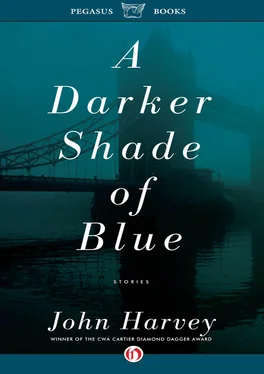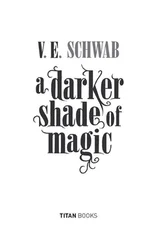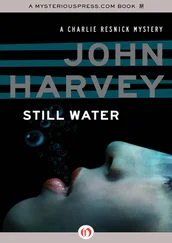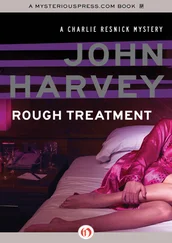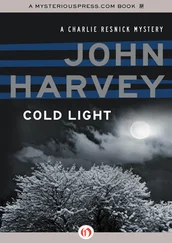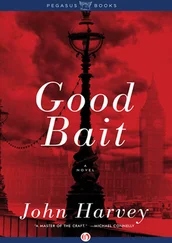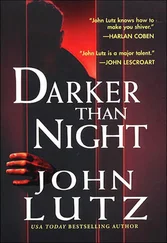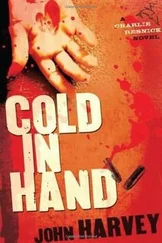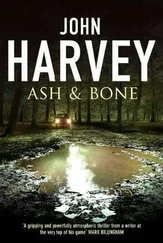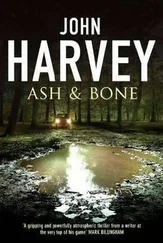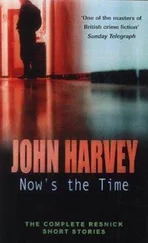John Harvey - A Darker Shade of Blue
Здесь есть возможность читать онлайн «John Harvey - A Darker Shade of Blue» весь текст электронной книги совершенно бесплатно (целиком полную версию без сокращений). В некоторых случаях можно слушать аудио, скачать через торрент в формате fb2 и присутствует краткое содержание. Жанр: Полицейский детектив, на английском языке. Описание произведения, (предисловие) а так же отзывы посетителей доступны на портале библиотеки ЛибКат.
- Название:A Darker Shade of Blue
- Автор:
- Жанр:
- Год:неизвестен
- ISBN:нет данных
- Рейтинг книги:4 / 5. Голосов: 1
-
Избранное:Добавить в избранное
- Отзывы:
-
Ваша оценка:
- 80
- 1
- 2
- 3
- 4
- 5
A Darker Shade of Blue: краткое содержание, описание и аннотация
Предлагаем к чтению аннотацию, описание, краткое содержание или предисловие (зависит от того, что написал сам автор книги «A Darker Shade of Blue»). Если вы не нашли необходимую информацию о книге — напишите в комментариях, мы постараемся отыскать её.
A Darker Shade of Blue — читать онлайн бесплатно полную книгу (весь текст) целиком
Ниже представлен текст книги, разбитый по страницам. Система сохранения места последней прочитанной страницы, позволяет с удобством читать онлайн бесплатно книгу «A Darker Shade of Blue», без необходимости каждый раз заново искать на чём Вы остановились. Поставьте закладку, и сможете в любой момент перейти на страницу, на которой закончили чтение.
Интервал:
Закладка:
‘I Can’t Get Started’ was played at a funereal pace, the sound coarse and almost ugly; ‘Tea for Two’, one of the tunes Val had been listening to back in the hotel, started promisingly before teetering alarmingly off course; only a measured ‘There Will Never Be Another You’ rose from its foggy, thick-breathed beginning to become something that had moments of beauty between the self-doubt and misfingerings.
‘If I ever get into that state, poor bastard,’ Val said, once we were back outside, ‘promise you’ll take me out and shoot me.’
Yet in the succeeding weeks he went back again, not once but several times, fascinated despite himself, watching one of his idols unravel before his eyes. Then there was the time he went along and Young was no longer there; he’d cancelled his engagement suddenly and returned to the States. Two weeks later he was dead.
The evening he heard the news Val played ‘There Will Never Be Another You’, just the one chorus, unaccompanied, at the beginning of each set. A day later I walked into his room in the middle of the afternoon, and saw him sitting, half-naked on the bed, needle in hand, searching for a vein.
‘Oh, Christ, Val,’ I said.
He looked at me with tears in his eyes then slapped the inside of his thigh again.
I slammed the door shut, grabbed my coat and purse and ran out on to the street. For hours I just walked, ending up who knows where. At a corner bar I drank two brandies in quick succession followed by a creme de menthe and was promptly sick. I wanted to go back to the hotel, pack my bag and leave. What the hell was I doing there? What game? What stupid dream? There was vomit on the hem of my dress and on my shoes.
When finally I got to the club it was late and Val was nowhere to be seen, just his saxophone, mouthpiece covered, on its stand. In answer to my unspoken question, the pianist just shrugged and, still playing, gestured with his head towards the street.
I heard Val’s shouts, muffled, coming from the alley that ran from close alongside the club down towards the Quai Saint-Michel. Val lay curled in on himself, arms cradling his head, while two men took it in turns to kick him in the back, the chest, the legs, anywhere they could, a third looking on.
‘Espece d’ordure, je vais te crever la paillasse!’
I stood, frozen, unable to react, then ran forward, screaming, and, as I threw myself at one of the men, he swung his arm into my face and I went stumbling back against the wall, blood filling my mouth. The sound of police sirens was too indistinct, too far away.
When someone helped me to my feet and I walked, unsteadily, to where Val still lay, unmoving, I thought that they had killed him. I thought he was dead.
For three days I sat by his bed in the hospital and held his hand. At night, I slept in the corridor outside, legs drawn up, on a chair. One of several broken ribs had come close to puncturing a lung. A week later I held his hand again as we walked in the hospital garden, bare earth and the stems of roses that had been cut back against the frost.
‘How are you feeling?’ I asked him.
‘Fine,’ he said, wincing as he smiled. ‘I feel fine.’
After that there were always dull headaches that prevented him from sleeping and sudden surges of pain, sharp as a needle slipped beneath the skull. Despite the months and years of osteopathy, his back never sat right again, nagging at him each time he played.
‘Valentine Collins, jazz musician. Born, September 18th, 1937. Died, April 13th, 1976’. Thirty years ago. No need any longer to take the ferry to Calais and then the long, slow journey by train, and not caring to fly, I treated myself to Eurostar, first class. A slightly better than aeroplane meal and free champagne. The centre of Paris in less than three hours. Autumn. The bluest of blue skies but cold enough for scarf and gloves. I feel the cold.
The Metro from Gare du Nord to Saint-Michel is busy with so many races, so many colours, Val’s face would not have stood out at all. Not one of us, Patrick had said, and it was true, though not in the way he meant.
The rue de la Huchette is now a rat-run of kebab houses and creperies and bars, so crowded, here and there I have to walk along the centre of the narrow street.
Le Chat Qui Peche is now a restaurant and the sign has been taken down. For a while I think I might go inside and have a meal, reminisce a little with the waiter, if he has sufficient English to complement my meagre French. But it is finally enough to stand here at the pavement’s edge with people spilling round me, wondering, some of them, perhaps, what this old woman is doing, just standing there, staring at nothing in particular, none of them hearing what I hear, the sound of Val’s alto saxophone, a ballad, astringent, keening, ‘Every Time We Say Goodbye’.
GHOSTS
It was mid-morning, and Kiley was in his office two floors above a charity shop in Tufnell Park, stranded between his second cup of coffee and his third. ‘Investigations’, read the ad in the local press, ‘Private and Confidential. All kinds of security work undertaken. Ex-Metropolitan Police.’ The absence of carpet made it easier to hear footsteps on the stairs. A pause and then a knock.
She was late thirties, dressed ten years younger, and looked all of forty-five, with the eyes of someone who woke up every day expecting to be disappointed and was rarely, if ever, disabused.
‘Jack Kiley? Rita Barnes.’
Her hand was all cheap rings and bone.
Kiley knew the name and a moment later he knew why.
‘Bradford Barnes, he was my son.’
The flowers had spread across the pavement close to the spot less than a hundred metres away where he’d been killed; tiny candles had burned through the night. Photographs and messages taped to the wall. ‘Always remembered’. ‘A tragic waste’. Bradford had been on the way home from a party, not late, a little after twelve, and had inadvertently brushed the shoulder of a young woman heading the other way. When he’d stopped to apologise, one of the men with her had raised his voice and then his fist. Punches flew and then a knife. When the group sauntered off laughing they left Bradford where he lay. A still-warm statistic, choking on his own blood. The twenty-second young person to have been stabbed to death in the capital that year and still months to go. Gang stuff, drug deals gone sour; the wrong look, the wrong word, the wrong place at the wrong time. Respect.
‘I remember,’ Kiley said.
The flowers had long since faded and been swept away; the photographs torn down.
‘A year ago next week he was killed,’ Rita Barnes said, ‘three days short of his birthday, an’ the police still i’n’t got a bloody clue.’
She took an envelope from her bag and counted the notes out on his desk. ‘There’s two hundred and fifty. I’ll get more. Find the bastard as did it, okay?’
What was he supposed to say? It was a waste of his time and her money?
Well, he had the time.
When she’d gone he put in a call to a DI he knew at the local nick. Jackie Ferris met him in the back room of the Assembly House, its dark wood panelling and ornamented windows harking back to palmier days.
‘Not got a clue, that’s what she says?’ Still on duty, Ferris was drinking lemon and lime.
‘She’s wrong?’
‘We’ve had more than a clue since day one. Russell Means. It was his girlfriend Barnes bumped into. He’s got form and a mouth to go with it, but forensics didn’t give us shit and, surprise, surprise, no one’s talking. Least, not to us.’ Ferris raised her glass. ‘You might have more luck.’
Rachel Sams lived on the seventh floor of an eight-floor block close to the closed-down swimming pool on Prince of Wales Road. Three of the flats on her level were boarded up and padlocked fast. The first two occasions Kiley called she refused to open the door and then, when she did, it was only to slam it in his face. It took a fierce squall of rain — Rachel hunched against the wind as she manoeuvred a buggy laden with supermarket carrier bags and containing a wailing two-year-old — for Kiley to open negotiations.
Читать дальшеИнтервал:
Закладка:
Похожие книги на «A Darker Shade of Blue»
Представляем Вашему вниманию похожие книги на «A Darker Shade of Blue» списком для выбора. Мы отобрали схожую по названию и смыслу литературу в надежде предоставить читателям больше вариантов отыскать новые, интересные, ещё непрочитанные произведения.
Обсуждение, отзывы о книге «A Darker Shade of Blue» и просто собственные мнения читателей. Оставьте ваши комментарии, напишите, что Вы думаете о произведении, его смысле или главных героях. Укажите что конкретно понравилось, а что нет, и почему Вы так считаете.
